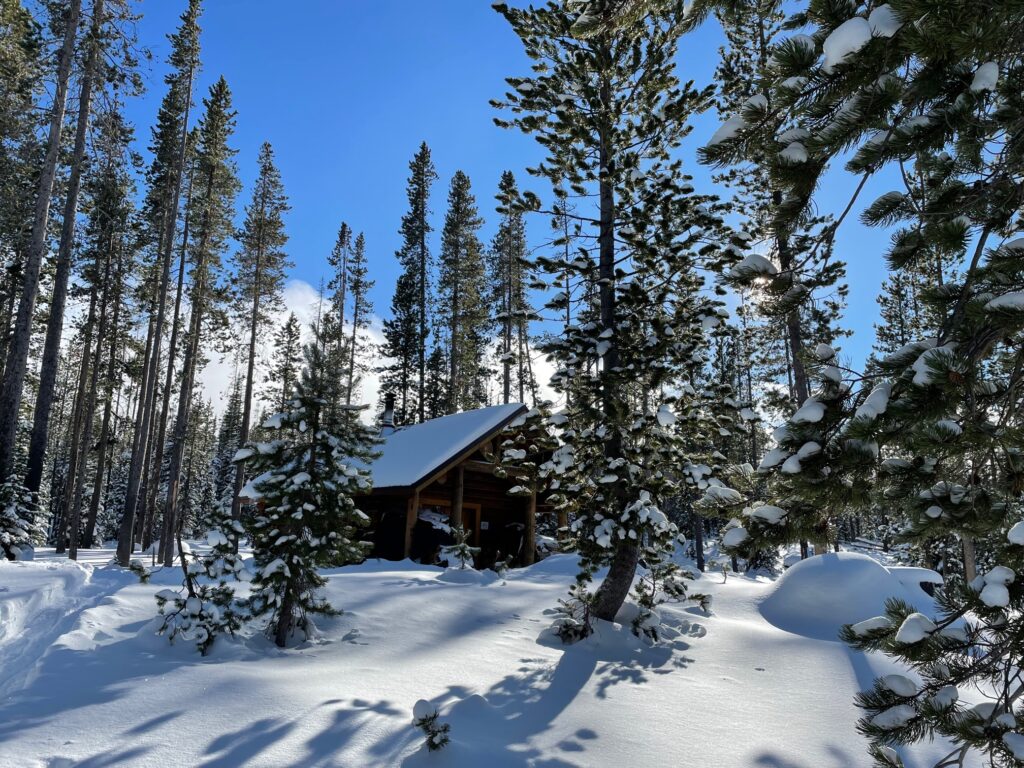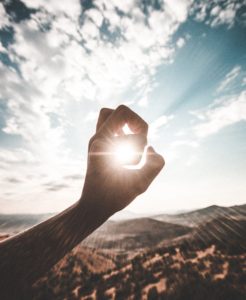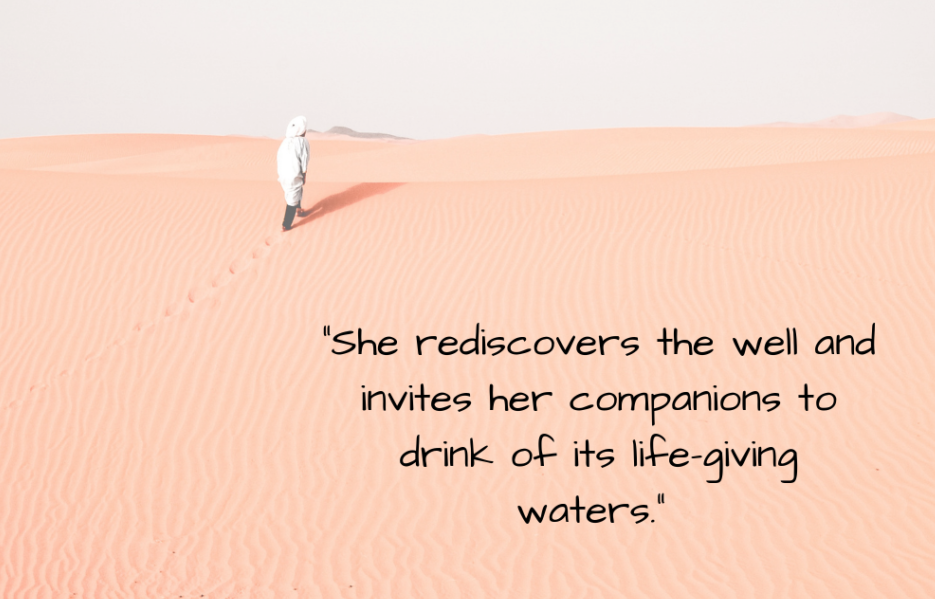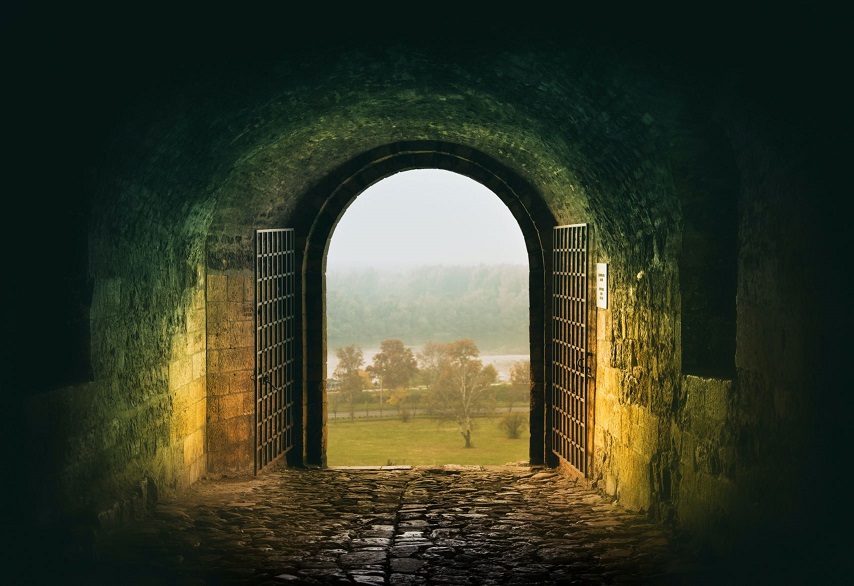
| How’s your December going? I don’t know about you, but at this dark time of year I yearn to be a sturdy fir tree in a quiet, snow-covered forest. I’d feel the sun on my bark during these short days. I’d feel the brilliant starlight from the spangled sky during the long, cold night. I’d shelter chickadees and nuthatches in my branches, and I’d wave my crown to the passing ravens. A close second would be a couple of weeks in a well-insulated, well-stocked cabin in the same forest, overlooking a frozen lake nestled in a valley below snow-covered peaks upon which mountain goats frolic. Long walks. Fireside talks. Deep sleeps. My first yearning isn’t happening because it’s a fantasy. Perhaps I can be a sturdy fir in my next life, but for now I’m stuck in this human body. My second yearning isn’t happening either, because it’s December. And I’m outsourcing my authority. If this time of year feels like a burden, you’re outsourcing your authority, too. You’re letting someone else decide for you how you’ll spend your time, energy, and money. You and I can opt out of anything we want to. Really. We only have to be willing to be uncomfortable. The only way I know to a life that’s truly, authentically mine is to reclaim my authority over my choices. Reclaiming my authority starts with my theology. You have to know what you believe. Reclaiming your theology: What do you actually believe about God, Life, Being, Universe? You get to decide what you believe. Your beliefs about God, Divinity, Holiness, Energy, whatever you call it are foundational. They’re the most crucial beliefs we have. And you must get concrete with them. So much theological language is airy-fairy and abstract. What does “God is love” actually look like? What do we really mean when we say we’re all “children of God”? And, of course, the real biggie … the elephant in the room … What/Who does the word “God” mean, to you? Go beyond and underneath the definition you learned in Sunday School. What does that word mean to you, right here, right now, today? It’s crucial that you answer this question for yourself. Here’s one way into that question. I use this process with myself and with clients, and the results are always surprising. We’ll get back to Christmas, I promise. 1. What qualities do you ascribe to God/Being/Universe? Do you believe God is generous? Life-giving? Light-filled? Warm? Abundant? Pervasive? Beautiful? Diverse? Powerful? Nurturing? Healing? Renewing? Strengthening? Flowing? Make a good long list, then pick your foundational three to five descriptions of Divine energy—the ones that resonate most deeply. The ones that bring a smile to your face and a warm glow to you heart. 2. Imagine a metaphor for God that incarnates the qualities you chose in Step 1. For example, if you believe God is healing, renewing, and flowing, you might imagine God as an infinite underground aquifer, as Meister Eckhart did. Or as the green sap rising, along with Hildegard of Bingen. If you believe God is warm, nurturing, and life-giving, you might imagine God as a womb. If you believe God is light-filled, life-giving, and pervasive you might imagine God as the sun. If you believe God is nurturing, strengthening, and abundant, you might, along with Paul Tillich, imagine God as ground. Or dirt. You might imagine God as Mother. Or perhaps Father, a time-honored choice. Gardener. Wind. A city on a hill. A potter or sculptor or artist. Rock. The only requirement is that your metaphor be something concrete and real in the world. So many options. What comes up for you? Every answer is right. 3. Now ask yourself: Who am I in this metaphor? If God is dirt, am I possibly a tree? If God is sun, am I perhaps a rose? Or a sunflower? If God is wind, am I a hawk? Or maybe a sailboat? If God is an infinite aquifer, am I a well? Or a spring? If God is a woman’s womb, am I a daughter born of that womb? And so on. You get the idea. 4. Use your metaphor as a springboard. Mess around. Play with this. Try several on for size. You could ask these questions: What does my metaphor for God tell me about prayer? What does my metaphor for God tell me about what “sin” might mean for me? What does my metaphor for God tell me about love? What does my metaphor for God tell me about how I want to live my life? 5. Finally, what does my metaphor for God tell me about how I want to celebrate Christmas? This is deep soul work. Deep soul work is nurturing. Nurturing for you, for those you love, and for the world. Thank you for doing it. Cultural capitalist Christmas has little overlap with deep soul work. Church Christmas misses the mark for most of us, too, with its underlying message of our sinfulness and consequent need for salvation. This disconnect is exhausting. It’s exhausting to pour so much time, energy, and money into a celebration that ultimately doesn’t reflect your deepest values and beliefs. We care for ourselves when we do our deep soul work, gently and consistently. We care for ourselves, those around us, and our world when we gently and consistently bring ourselves home to our hearts. We care for ourselves when we tell the truth about our values and priorities, with our words and our lives. Remember who you are. Reclaim your authority. Recommit to your life. If you’re feeling burdened by December, I hope this helps. Let me know how it goes! PS. I’m intrigued by the possibility of doing this work in community, so I’ll be hosting a free Zoom in early January to do it together. I’d love to know if that’s something you’d be interested in. And I’m available for a no-cost, no-obligation Clarity Call if you want to explore this process in person. Subscribe here for my weekly-ish newsletter, where I share my latest writing and current offerings, including free Zoom calls! Image: Swampy Lakes Shelter, Deschutes National Forest, 12.5.22. |






